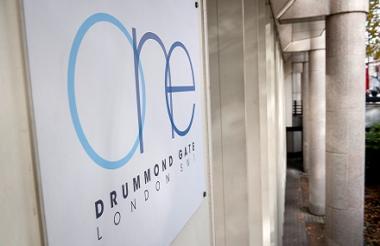The problem with charities is not that there are too many, says Dan Corry. The problem is the absence of almost any mechanism to make sure the best survive and the worst do not.
One of the great traditions of the British voluntary sector is that more or less anyone can establish a charity, and pursue a passion to do good. Quite right, too. This is one of the reasons the sector is so diverse and dynamic. It is far too blunt to say, as ex-civil service supremo Lord O’Donnell did last month, that there are just too many charities.
But the net result is that, almost by definition, we end up with a sector which is less effective than it could be.
There are few of the pressures that distinguish success from failure in the private sector: no shareholders demanding clear metrics to make judgments; precious little competition based on cost-effectiveness. The governance system of trustees relies on unpaid part-timers.
This is where the Charity Commission could exercise subtler ‘nudge’ powers.
It may not be a popular view among charities, but it isn’t the Commission’s role to champion their work or worry about how individual organisations are coping. Their primary job is to regulate charities, so that donors know they are giving to bona fide organisations.
Nonetheless, the Commission can do more. It has the influence—and, vitally, the information—to nudge people towards smarter decisions.
One is through amending the duties of trustees, which currently focus almost exclusively on making sure the charity survives financially. There is nothing on what the charity’s impact is, what it is actually achieving.
Of course the finances have to be sound, but the watchdog should require that charities submit some kind of report each year that goes beyond this. How have charities progressed towards their mission, and how did that compare to last year?
How do they intend to improve it for the year to come? We would leave it open as to how they did that, but clearly while big charities could provide some pretty serious evaluation and measurement, the demands on smaller charities would be much, much less.
The other part of the process should be about data and transparency. The Charity Commission already holds a tonne of data on charities, gathered as part of its day-to-day work. This could be put to much better use.
First, whenever a charity applies to be registered, the Commission should send them back a list of charities that already exist in the same town or region and which claim to work in a similar area. They could go further: why not list those charities’ turnover, reserves, size, their growth or shrinkage over the last few years? At the very least, would-be charities could know if they were joining a crowded field, or starting work on something which had proved unsustainable for others.
Second, the same sort of data could be sent to existing charities each year. Maybe we would see as a consequence a few more mergers and collaborations, and a bit less blind competition. It could certainly do no harm.
And third, the data could be used to analyse exactly what is going on in the charity world in something a bit closer to real time (especially if we could reduce the delay between the regulator receiving the data and releasing it in a digitally searchable way).
So the Commission could publish reports on what was happening in different regions and different bits of the sector, or allow others to access the data and do the same. This way we would soon notice if there was a decline in funding for charities working on mental health in the south west, for example, or an increasingly high failure rate in early years charities in Burnley. Funders of all types, along with national and local policy makers, would then have vital information to help respond to these trends.
None of this would be transformational. It does not get us to where we at NPC would love to be, with donations and other decisions based on an analysis of different organisations’ cost-effectiveness and their ability to achieve real outcomes. On the other hand, the whole system will have been nudged to achieve a bit more, while leaving people free to set up charities, unfettered by what some big brother thought was good.
















